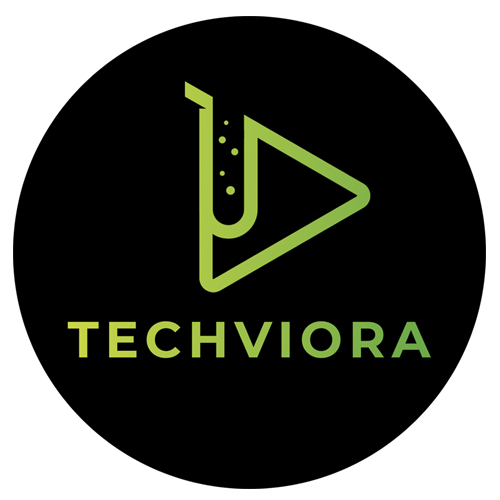Artificial Intelligence is transforming the world more than ever before. As for 2025, AI is no longer a tool but an integrated aspect of everyday life and businesses. Yes, it has embedded itself in every aspect of our lives – from health care to business and shopping. AI trends are new, supporting business revenues, enhancing technology intelligence, and tackling issues.
These changes are not only enhancing the quality of life but also teaching people what a post-coronavirus world may be like. It is crucial for everyone to stay informed on these trends. Whether you are an AI developer or simply interested in advancements, read this blog to learn about the 10 Biggest AI Trends Of 2025.
Generative AI is revolutionizing content creation. It assists businesses in creating videos, images, and text quicker and easier. Modern industries have adopted artificial intelligence tools to deliver content relevant to the target audience.
For example, it can design realistic images of the products, develop catchy text for social media platforms, and more. This saves time and money while improving results. That is why generative AI is becoming a valuable instrument for everyone in the creative industry.
AI is enhancing healthcare as it provides the right diagnosis and treatments. Doctors use AI tools to interpret medical information with a lot of ease, reducing the time taken to detect diseases. It also predicts the right treatment strategies for every single patient.
It is less likely to make mistakes, and the rate of successful treatment is higher. The advancements in AI’s use in healthcare are clearly useful since they are helping healthcare services become faster, cheaper, and more effective.
Self-driving cars will capture the market in 2025. Leading industries are doing everything possible to make self-driving cars more secure and efficient. These cars can incorporate AI to identify objects on the road, follow traffic signals, and protect the passengers.
People are beginning to trust this technology because it reduces the number of accidents humans cause. Thanks to infrastructure development and suitable rules and regulations, self-driving cars can be used as daily transport in many cities.
Cybersecurity is stronger than ever because of artificial intelligence. It can identify threats in real-time and stop the cyber threats before they start. AI businesses work to identify suspicious activities that will be detrimental to systems or steal information.
These tools are being applied by firms to shield their networks and the safety of their customers. New cyber threats are evolving and being introduced, and this is why artificial intelligence is a required aspect of cybersecurity.
AI is contributing to efficient working practices, meaning that some tasks are automated by machines. It enables workers to concentrate on inventive and strategic tasks. For example, GPTs can write emails, capture meeting notes, or summarize long files for the team.
It enhances efficiency and optimizes the mix of human and mechanical input into task execution. Instead of replacing jobs, it emerges as a helpful colleague in the workplace that enriches the engagement of the jobs and reduces stress.
Machine learning is being used to help prevent climate change. It assists in weather forecasting and in the effective regulation of energy consumption. For example, AI can adjust the electricity supply to eliminate wastage or use advanced images to detect instances of deforestation.
The solutions provided above are very helpful in reducing resource utilization and being environmentally friendly. Today, a growing number of organizations are using AI to create sustainable practices.
Today’s e-commerce business uses AI to enhance the customer experience and make shopping fun. AI tracks a user’s behavior and presents products relevant to their interests. It also enhances the quality of the search results and enables easier and quicker access to what one may be looking for.
This personalization increases customer satisfaction and loyalty. Businesses benefit, too, as happy customers are more likely to return. In 2025, AI will make online shopping faster, smarter, and more customer-focused.
Voice assistants like Alexa and Siri are getting smarter. They can now understand natural conversations better and respond more accurately. These assistants make daily tasks easier, such as setting reminders or controlling smart home devices.
They also work across different platforms, offering seamless experiences. With advancements in natural language processing, voice assistants are becoming more helpful and reliable, making them an essential part of modern living.
AI is transforming education by offering customized learning experiences. It helps students by identifying their strengths and weaknesses and tailoring lessons accordingly. Online platforms use AI to provide instant feedback, which improves learning outcomes.
Teachers also benefit from AI tools that assist with grading and lesson planning. This technology makes education more accessible and effective, helping students learn at their own pace and succeed in their studies.
With AI growing fast, ethical concerns are becoming important. Developers are focusing on making AI systems fair and transparent. Governments are also creating laws to ensure AI respects privacy and avoids discrimination.
These steps build trust in AI and encourage responsible use. Ethical AI ensures that the technology benefits everyone without causing harm. In 2025, ethical practices and regulations are shaping the future of AI development.
AI is changing the world in many ways, and 2025 is full of new possibilities. These trends are helping industries grow and making life easier for everyone. From healthcare to education, AI is improving how we work and live.
Staying updated with these advancements is important for adapting and succeeding. By understanding these trends, we can prepare for the future and make the best use of AI’s offerings.


